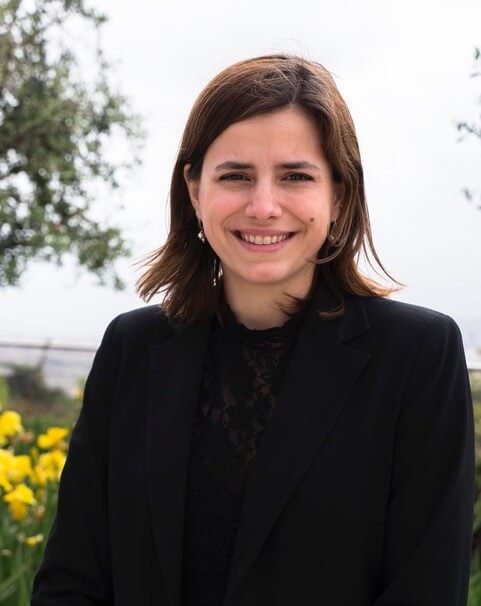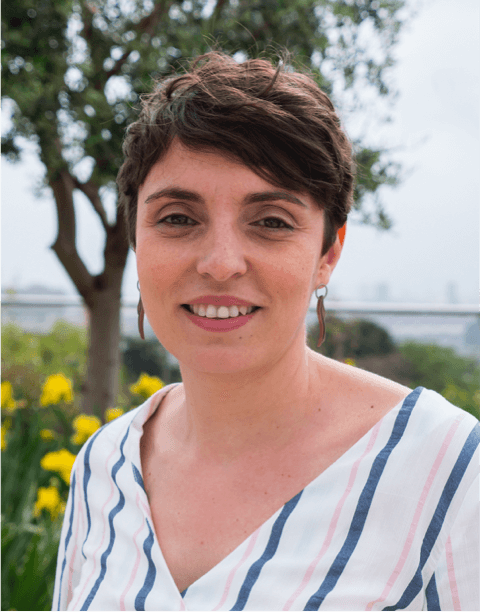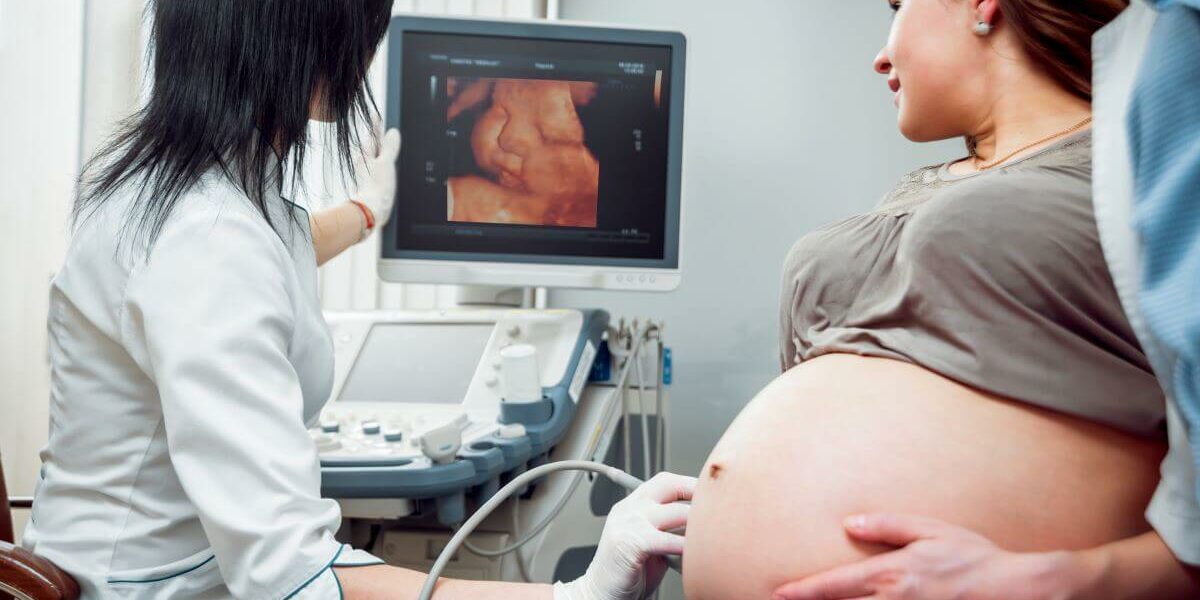At the University of Barcelona we meet two Elisenda’s whose work tries to identify deviations in foetal brain development as early as possible to help prevent and/or minimise childhood disability.
Georgia Mappa is based at the University of Leeds where they are trying to improve the prediction of mothers at risk of early delivery.

Elisenda Bonet-Carne
Scientific Manager at BCNatal Fetal Medicine Research Center

Elisenda Eixarch, MD, PhD
BCNatal Fetal Medicine Research Center

Georgia Mappa
Postgraduate Researcher
What are you currently working on?
Elisenda B-C: I am currently working on research management, providing support to different research projects. My particular research area is innovation mostly in medical image analysis and its translation to real clinical practice.
Elisenda E: I am part of the team at the Fetal Medicine Research Center, BCNatal-Hospital Clínic and Hospital Sant Joan de Déu, Barcelona, Spain.
Georgia: I am currently undertaking a PhD at the University of Leeds, focusing on pregnancy complications.
The principal aim of my work is to better understand the placental pathophysiology underlying pregnancy complications. To this end, I have been utilising volume imaging (by implementing Light Sheet Fluorescence Microscopy) of placentae to investigate the putative morphological aberrations and altered function which differentiate normal and pathological pregnancies.
Why you do what you do?
Elisenda B-C: I am passionate about research and innovation and how multidisciplinary teams can achieve bigger objectives than the ones performed only by professionals with the same background.
Elisenda E: Because I want to change the way the fetal medicine is done, there is still a lot of things to improve, and I want to be part of this change.
Georgia: Whilst most women can enjoy a healthy and uncomplicated pregnancy, there are three major complications that may unexpectedly occur: preterm birth (babies born more than 3 weeks early), growth restriction (baby has a lower birth weight than expected), and pre-eclampsia (high blood pressure in pregnancy). Worldwide, and in the UK, these adverse outcomes affect one in five pregnancies. Alone, or in combination, they may have serious consequences for the mother and/or her baby.
Importantly, they are the leading causes of neonatal brain injury and later childhood disability (both cognitive and motor, ranging from poor academic achievement through to the spectrum of cerebral palsy). For many of these babies there is a need for additional neonatal support and care, especially for those born preterm.
Ideally, we would be able to predict which mothers are at risk and put in place preventative strategies. However, identifying at-risk mothers is difficult as the reasons for these adverse outcomes are complex and poorly understood.
What achievement are you most proud of?
Elisenda B-C: I am proud of my PhD Thesis, as a result of it a product (quantusFLM) was developed, patented and commercialised and it seems that is still ongoing. Also, I am really happy to participate in different local Woman in STEM initiatives.
Elisenda E: We have spent more than 10 years doing basic research to have enough evidence to test a protective prenatal therapy in intrauterine growth restriction. Now we are ready to test in a clinical trial and if we succeed (I hope we will!) a lot of babies will be benefited
Georgia: I have been using innovative imaging technology that allows large areas of the placenta to be surveyed and visualised in 3D. By using this digital platform I will be able to perform a comprehensive analysis of healthy and diseased placentas and compare for structural or morphological differences. We hope this will further our understanding of placental function in pregnancy complications and identify markers of susceptibility to disease, that could be used a prognostic tools.
What difference do you hope your research will make?
Elisenda B-C: That my research and the research that I support will be translated to clinical practice instead of just being published in a scientific journal paper.
Elisenda E: I hope that my work will increase the quality of life of babies by improving prenatal environment, developing new biomarkers of brain damage and reducing sequalae in high-risk conditions.
Georgia: I hope my research makes a difference to the lives of expectant mothers-to-be and in their children by reducing/eliminating the incidence and impact of brain injury.
Who inspires you?
Elisenda B-C: My mentors, my past and current colleagues, and my family, in particular my sons. I love the concept that I work on something that they could be proud of.
Elisenda E: My patients, they are those who make me feel motivated to keep on working every day
Georgia: When I hear and meet families who have been affected by pregnancy complications that is an enormous encouragement to carry out my research, and hope that I can contribute in making a difference in the future.
You can follow our week-long celebration through our social media channels linked in our footer.









